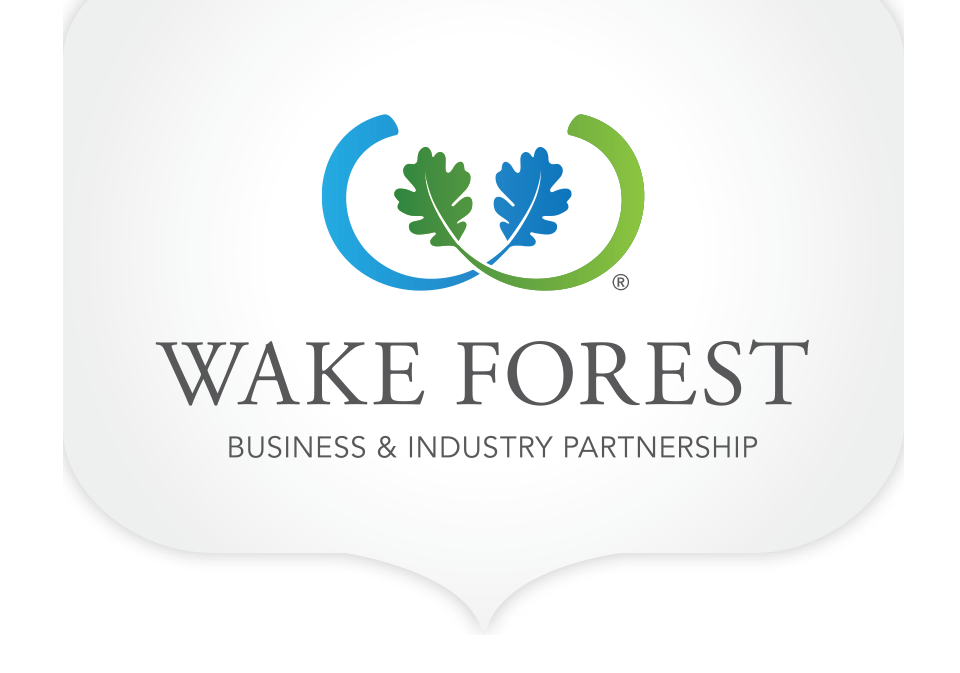The pieces are in now place to enable the Town of Wake Forest to claim a generous slice of the Research Triangle’s technology pie.
Gone are the days when RTP and Centennial Campus were the destinations of choice for companies in I/T, life sciences and cleantech, leaving the region’s smaller communities to serve as residential outposts. Ted Abernathy, managing partner at Economic Leadership LLC, believes Wake Forest’s recent work in setting aside 200 prime acres for a technology-oriented industrial park has the potential to bring a new wave of high-wage job growth. Abernathy’s Raleigh-based consulting firm recently completed a statistical analysis of the site’s prospects as a driver of economic development.
“What jumps out from a tech standpoint are two things that will impact Wake Forest,” says Abernathy, whose work with communities around the nation helps spot opportunities amid the numbers. As a technology region, the Research Triangle is now among the hottest destinations in the U.S., he says. “And it is broad-based and spreading from core areas like RTP, Cary and downtown Raleigh across the region.” Already communities such as Clayton, Holly Springs and Sanford have drawn high-profile global life sciences operations. “Wake Forest is likely part of a next wave to draw tech workers and tech companies,” Abernathy says.
Prior to launching Economic Leadership in 2013, Abernathy built a formidable global reputation as an economic development thought leader at the Southern Growth Policies Board and Research Triangle Regional Partnership. His 35-year career also includes local economic development practitioner roles in Baltimore and Durham.
“The biggest driver in technology these days is tech talent,” he continues. “It’s in short supply everywhere.” That’s where his recent labor shed analysis provides encouraging evidence about Wake Forest’s positioning. “If you look at commuting patterns, there are big numbers who can come into Wake Forest and staff companies there. You’re not just selling the people who live in downtown Wake Forest, but you’re considering the entire labor market.”
The town’s accessibility doesn’t just apply to available workers. It also puts the region’s universities, RDU airport, research organizations and other regional business assets within easy reach. Wake Forest’s new technology park, which sits on infrastructure-rich land owned by the Southeastern Baptist Theological Seminary, is conveniently located just off Capital Blvd. It has been certified “shovel ready” by the N.C. Department of Commerce. Earlier this year, ElectriCities, the Town’s public utility partner, approved its designation as a “Smart Site” after an exhaustive series of surveys, soil analyses and technical studies to gauge its capacity for development. It is one of only 25 properties in North Carolina to earn the distinction.
Efforts by the Town, led by the Wake Forest Business & Industry Partnership (WFBIP), to position the property as a life sciences destination are sending powerful signals to the industrial real estate marketplace, site selection consultants and the technology industry, Abernathy believes.
“All of this work, plus the close partnership the Town has built with the Seminary, make a really strong statement: ‘we’re ready for growth in the technology arena’,” he says.
The Town’s timing is also ideal. Data from Wake County Economic Development, a program of the Greater Raleigh Chamber of Commerce, indicates continued high interest here by tech and life sciences leaders. As of the end of March, there were 13 active life sciences projects considering Wake County, five active I/T projects and three in cleantech. “We want to bring opportunities to all our municipalities and support product development in all Wake County communities,” says Adrienne Cole, president and CEO at the Greater Raleigh Chamber. “There are major opportunities right now for life sciences in Wake County.”
WFBIP President & CEO Jason Cannon believes numbers tell a compelling story about the Town’s potential. “The data Ted and others have looked at point to a future for Wake Forest that involves not just good jobs at strong wages, but to a destination increasingly equipped with the assets today’s most lucrative high-growth industries are looking for,” Cannon says. “On the surface, the numbers tell an appealing story. But as you dig deeper and deeper into what the data actually mean, our story becomes truly unique – and really exciting.”




